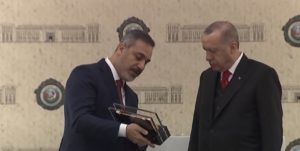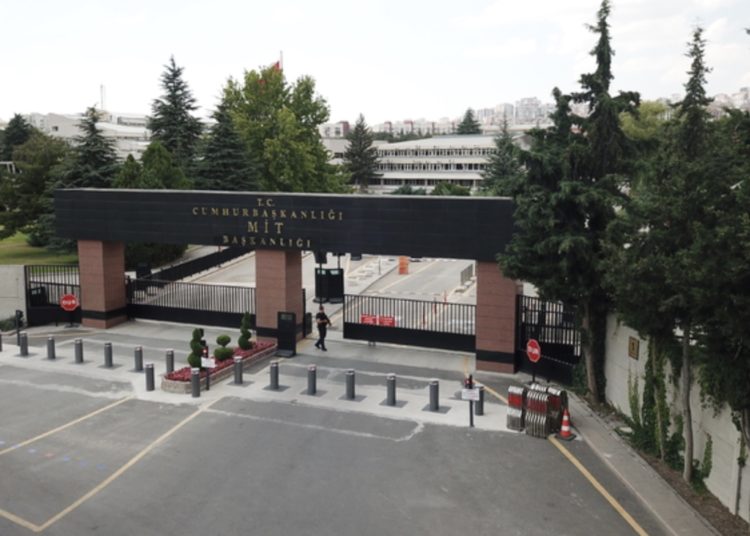Abdullah Bozkurt/Stockholm
Turkey’s National Intelligence Organization (Milli İstihbarat Teşkilatı, MIT) spent nearly half a billion Turkish lira in secret operations in 2020 while enjoying a huge spike in the assets it holds, valued at more than 32 billion lira.
According to the August 2021 audit report by the Court of Accounts, a copy of which was obtained by Nordic Monitor, MIT spent 495.4 million Turkish lira in what was described as “secret service expenditures.” What is more, the assets it holds jumped to 32.7 billion lira, a whopping increase of 92 percent compared to the previous year.
In 2018 MIT had only 3.8 billion lira in assets, but the agency has become a rich institution over the course of two years, growing its wealth to 32.7 billion lira, an increase of 761 percent in a short period of time.
The money poured into the agency is yet another indicator how the government of President Recep Tayyip Erdoğan has increasingly relied on the secret service to intimidate his opponents and conduct clandestine operations abroad. Used as a prop to support Turkey’s neo-nationalist Islamist regime, MIT continuously spies on critics in Turkey and abroad.
The report also showed that the agency spent 1.3 billion lira on operatives in 2020 and burned through 756.1 million lira of a budget item that was described as “unidentified.” The same figure was attributed to the amortization of properties owned by the agency in another section of the report.
MIT balance sheet for 2020 shows the agency has accumulated enormous wealth in two years’ time, reaching over 32 billion Turkish lira:
The agency also spent far more than its 2.2 billion lira budget allocated by parliament for the year 2020, exceeding its spending cap by 274 million, which was later provided to the agency from the supplemental budget.
Yet, that was not the entire picture, either. The agency managed to tap the coffers of the Defense Industry Support Fund (SSDF), an extra-budgetary resource for defense managed by the Presidency of the Defense Industry, formerly known as the Undersecretariat for the Defense Industry (SSM).
With a modification in the relevant law in 2014, Erdoğan simply allowed MIT to tap into the SSDF for its expenditures. MIT’s obligation to be bound by SSDF regulations governing tenders was lifted. As a result, the agency was not required to disclose any information concerning what it needed the money for and could hold tenders to procure arms in line with its own regulations, and the SSDF would merely provide the funds, no matter how much.

According to the report, MIT used 76.3 million lira from this defense fund, which was originally set up in 1985 to procure arms and related items for the military. The Turkish army was not comfortable with the new practice, but criticism was muzzled after a failed coup on July 15, 2016, when hundreds of generals and thousands of senior officers were discharged from the army.
In line with Erdoğan’s goals and strategy, MIT also enjoys a considerable share of the discretionary fund given to the president to spend on anything he wants without having to disclose any details. The Public Financial Administration and Transformation General Directorate’s monthly bulletin shows that the money spent from the discretionary fund for the first 10 months of this year was TL 2.2 billion, whereas this figure for the entire year in 2020 was TL 2 billion.
Government document shows MIT spent nearly half a billion lira in secret operations in 2020:
Although crippled and rendered almost ineffective by the Erdoğan regime, the Court of Accounts is still the major auditing body of the Turkish state, reviewing the spending by government agencies on behalf of the taxpayers. MIT’s spending details are not properly disclosed nor are they open to inspection or investigation.
Erdoğan has pursued a strategy to increase the prominence of the intelligence body by making it wealthier, stronger and less accountable over the years. The allocations from the main budget have seen a parallel increase in this strategy. Over the last years, especially after Erdoğan’s dirty secrets were laid bare by two consecutive corruption operations in 2013, the amount of money received by the agency has seen sharp increases.
MIT had always enjoyed some immunity from state auditing due to the sensitive nature of its operations, but it has become practically untouchable, particularly since Erdoğan has grown more autocratic. The Turkish leader purposely weakened the already feeble oversight conducted by parliament, hobbled the judiciary’s auditing authority and gagged the press, letting it speak only when beneficial to him. Under current conditions, although limited in scope and unsatisfactory in content, the Court of Accounts report is still one of the few clues available as to the operations of MIT.












